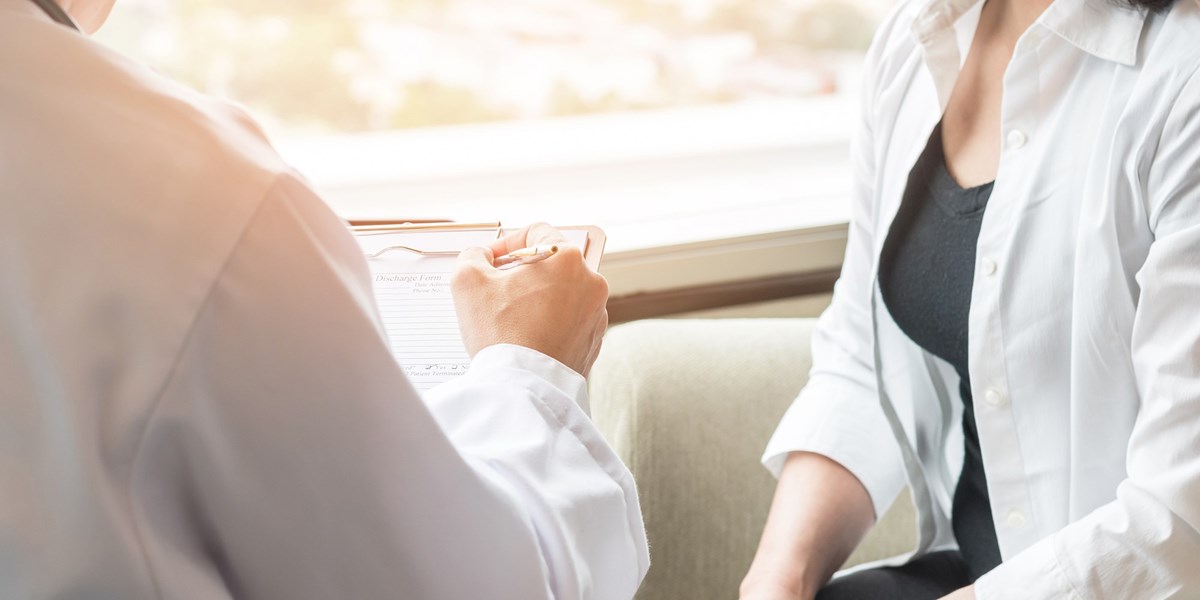4 Things to Consider When Planning to Conceive

By Dr. David Kreiner
Although we are a month into 2019, it's not too late to set goals for the year to come. If you are like my patients, the holiday greeting, Happy New Year, is a heartfelt hope, a wish that this year will bring you the family of your dreams. In the very least, your most important resolution is to build the foundation for that family you always assumed you would have.
But, how do you get started when it isn’t happening on its own?
First, if you are thinking about getting pregnant get a checkup! Get your pap done – go to the dentist – have your blood pressure and lipids checked. I’m not an expert on the art of motorcycle maintenance, but our bodies, like machines, go through wear and tear and, as a result, occasionally are not operating at optimum capacity.
Here’s what needs to happen for a life to be created. Millions of sperm need to traverse the cervix (which needs to have adequate watery mucus for the sperm to swim through to get to the uterus) and, from there, to the fallopian tubes where, en masse, the sperm gang release digestive enzymes that help bore a hole through the egg membrane. Your egg needs to be healthy and mature, picked up by the finmbria, the fingerlike projections of the fallopian tube and swept along the length of the tube by microscopic hairs within the tube. The environment of the tube needs to allow for fertilization with penetration by only one of the sperm, followed by division of the fertilized egg into a multicellular embryo. While the embryo continues to grow and cleave and develop ultimately into a blastocyst containing the future fetus (inner cell mass) and placenta (trophoblast) the tubal microhairs continue to sweep the embryo ultimately into the uterine cavity.
The lining of the uterus, the endometrium, must be prepared with adequate glandular development to allow the now hatched embryo to implant. Yes, there is a shell surrounding the embryo that must break in order for the embryo to implant into the uterine lining. Inflammatory fluid, polyps, fibroids or scar tissue may all play a role in preventing implantation.
Oy, it’s amazing this ever works!
In fertile bodies of good working order, this all works an average of 20% of the time!
So . . . how do we get our bodies in optimal shape to maximize our chance of conception?
- Check on medications that you may be on. Can you stay on them while trying to conceive? Guys need to do this too! Some medications may affect ovulation or implantation. Prostaglandin inhibitors found in common pain relievers can affect both ovulation and implantation. Calcium channel blockers commonly used to control high blood pressure may affect your partner’s sperm’s ability to penetrate and fertilize an egg.
- How is your diet? Is your weight affecting ovulation and preparation of your uterine lining either because it is too high or too low? Do you have glucose intolerance that is leading to high levels of insulin in the blood that affects your hormones and ovarian follicular and egg development? Perhaps you would benefit from a regimen including a carbohydrate-restricted diet, exercise, and medication to improve glucose metabolism.
- Make love. Sex is critical to reproduction, obviously but I am often asked how often and how to time as if it need be a scheduled chore. This is a bit tricky as it is vital that while we reproductive endocrinologists are assisting our patients to conceive, we want to preserve the relationship that provides the foundation on which we want to build their family. I try not to give patients a schedule until they are in an insemination cycle where we actually identify the precise day of ovulation. I recommend spontaneous lovemaking that in cases of normal sperm counts (which should be analyzed as part of that checkup) should average at least every other day in the middle of a woman’s menstrual cycle. Ovulation typically occurs 14 days prior to the onset of her menses. Sperm survive anywhere from 1 day to 7 days in a woman’s cervical mucus varying both on the sperm and the quality of her mucus which for some women is optimal for only hours if at all. Eggs survive 6-8 hours. Therefore, when we perform insemination it is better if we inseminate prior to ovulation rather than after as we the sperm have more time to sit around and wait for the egg than vice versa.
- See a Reproductive Endocrinologist. When all else fails, it is recommended that you consult with a reproductive endocrinologist (RE) if you have not conceived after one year before age 35 and six months if you are 35 or older. The treatments available to the specialist are extraordinarily successful today and should ensure that for the great majority of you, 2019 will be a very happy new year.
